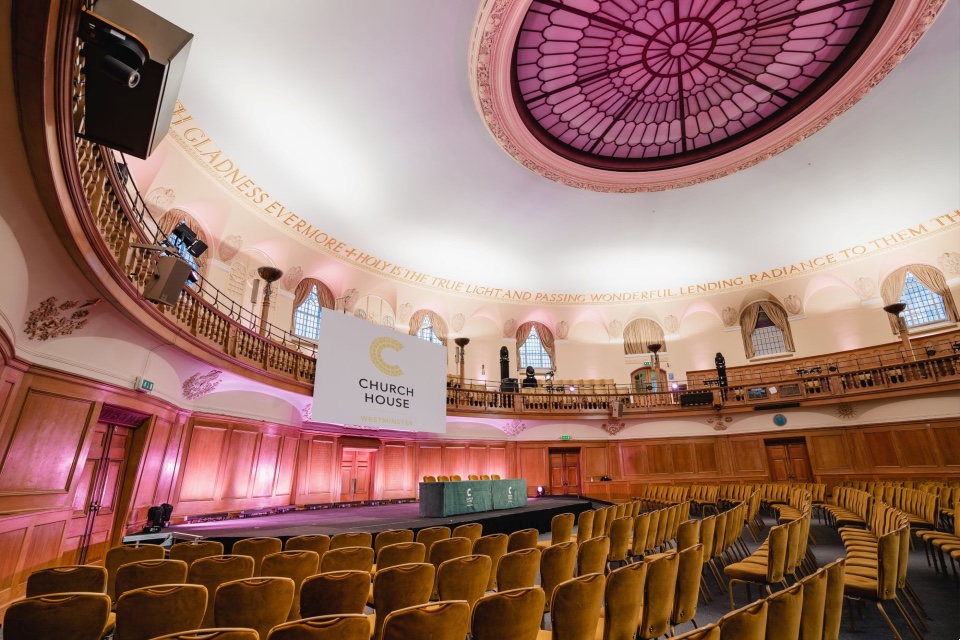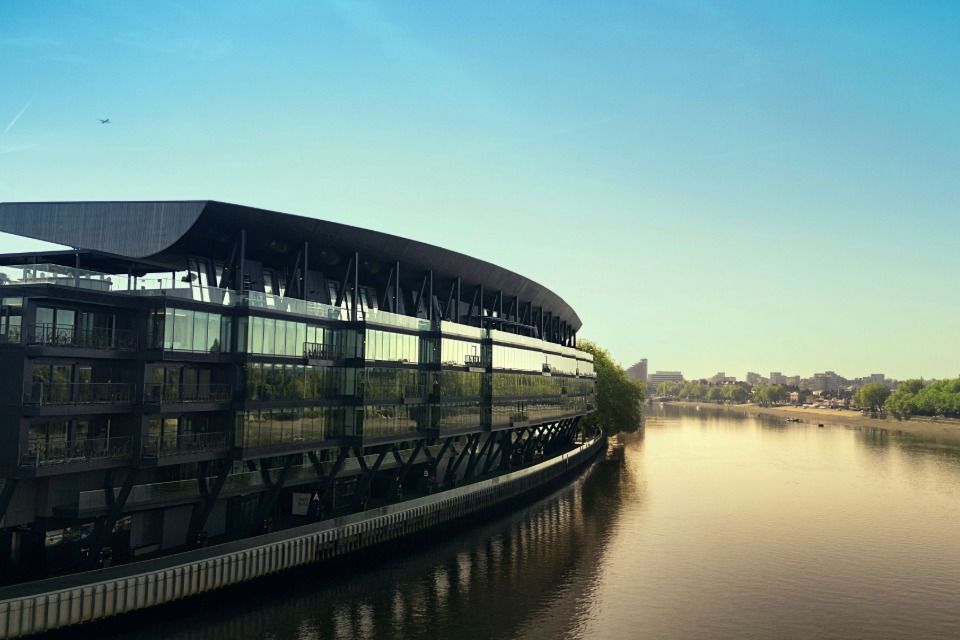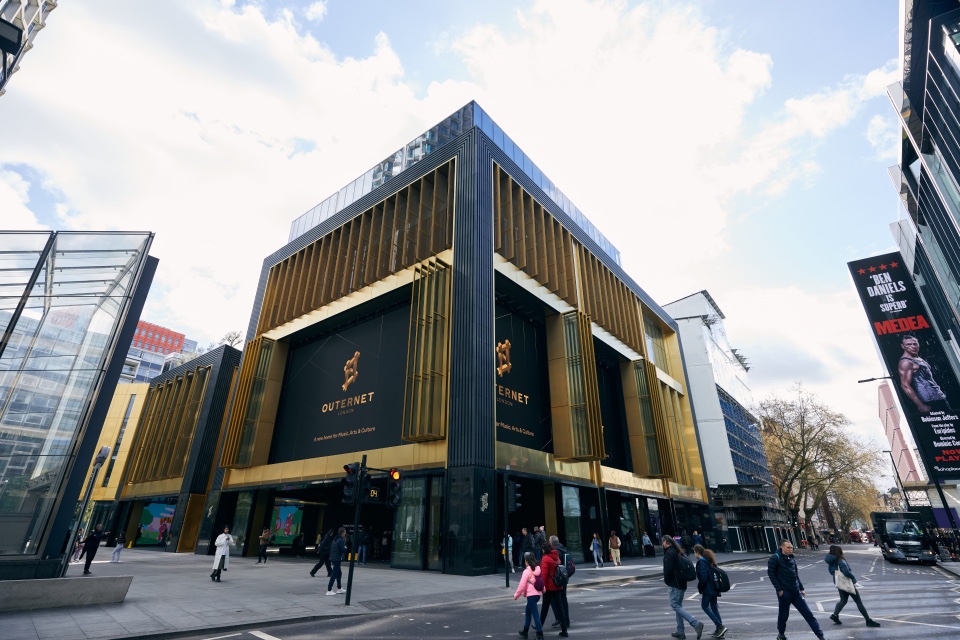Conference and event venues across the UK have adapted to new expectations since the post-pandemic re-opening, emphasising flexibility, sustainability, and immersive technology to meet the evolving needs of event managers. As events continue to combine physical and digital experiences, event professionals are increasingly selecting venues that provide modern facilities, advanced technology, and a commitment to sustainability. Here’s an overview of the key trends, covering venue types, facilities, costs, and future outlook…
1. Hybrid-Ready Venues with Advanced AV Technology
The rise of hybrid events has made hybrid-ready venues a top choice for event managers. These venues are equipped with advanced audio-visual (AV) technology, high-speed internet, and multi-camera setups that allow seamless live streaming and virtual participation. Hybrid-ready venues provide equipment for virtual breakout rooms, on-site tech support, and interactive features, enabling events to reach global audiences without compromising the experience for in-person attendees.
Hybrid venues are popular for corporate conferences, product launches, and industry expos where global reach is valuable. While hybrid setups come with additional costs due to AV equipment and streaming services, they provide substantial ROI by increasing audience size and engagement.
2. Sustainable and Eco-Friendly Venues
Sustainability has become a significant criterion for venue selection. Event managers are increasingly seeking venues that demonstrate eco-friendly practices, such as zero-waste policies, renewable energy sources, and sustainable catering options. Venues that provide digital check-ins, recyclable materials, and energy-efficient lighting are highly valued by brands wanting to align with environmentally conscious practices.
These sustainable venues often carry a slight premium, but they attract organizations committed to reducing environmental impact. Some eco-friendly venues offer incentives, like discounts for green certifications or reduced rates for lower energy usage, making them an attractive option for sustainably-minded events.
3. Flexible, Multi-Functional Spaces
Flexibility is key for today’s events, as organizers look for multi-functional venues that can accommodate diverse formats, from intimate seminars to large conferences. Venues with modular spaces, retractable walls, and adaptable layouts are popular, as they allow organizers to tailor the space to specific needs, such as small-group workshops, open networking spaces, or large auditoriums for keynotes.
Flexible venues are ideal for corporate events, conventions, and industry gatherings where various session types need to be accommodated under one roof. The cost of renting multi-functional spaces varies depending on size and customization needs, but the ability to adapt spaces as needed often offsets any additional costs.
4. Immersive and Experiential Venues
In 2024, experiential venues have gained traction as brands focus on creating memorable, interactive experiences. Venues offering immersive environments, such as LED walls, interactive exhibits, and virtual reality (VR) zones, allow event planners to design unique, engaging settings. These venues are ideal for product launches, brand activations, and entertainment events, where audience immersion is key to engagement.
Though immersive venues often come at a higher price due to specialized equipment and setup, the impact on attendee engagement and brand recall can justify the investment, particularly for high-profile events.
Outlook for 2025 and Beyond
The future of event venues will continue to focus on hybrid capabilities, sustainability, and flexibility. As technology advances, venues will likely integrate even more immersive features, while sustainable practices will become a standard requirement. Event managers can expect further innovation in multi-functional, adaptable spaces, making venues more versatile for a wide range of event types. With these trends, UK venues are set to support dynamic, impactful events that cater to both in-person and virtual audiences, adapting to the evolving landscape of event management.
Are you searching for new venues from your events? The Event Organisers Summit can help!
Photo by Ben Moreland on Unsplash






